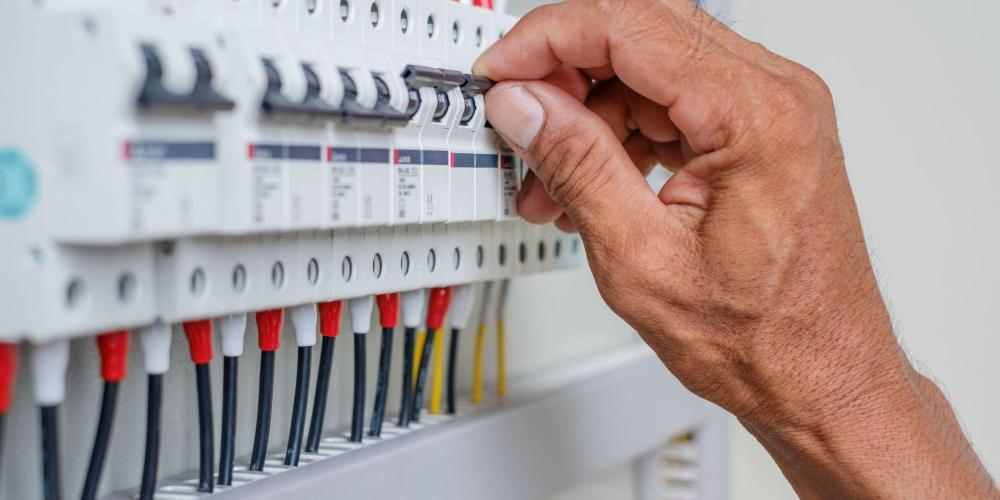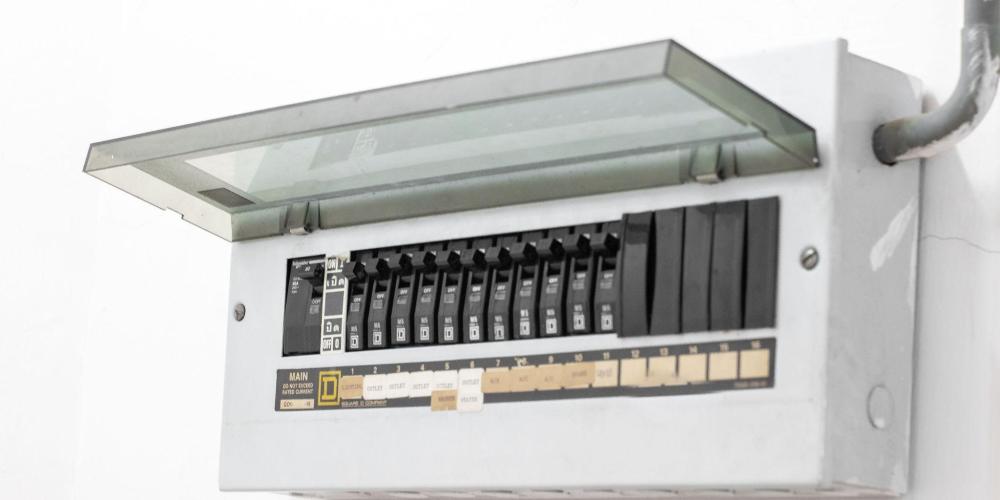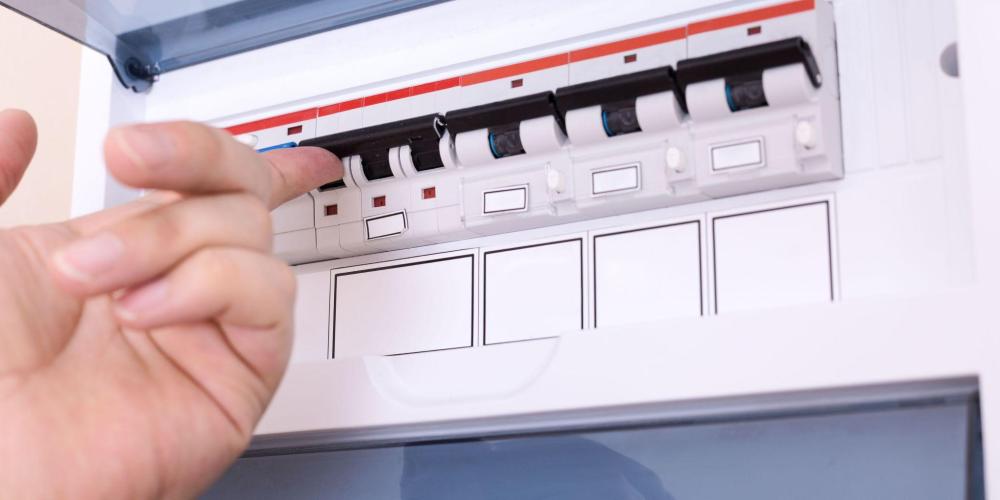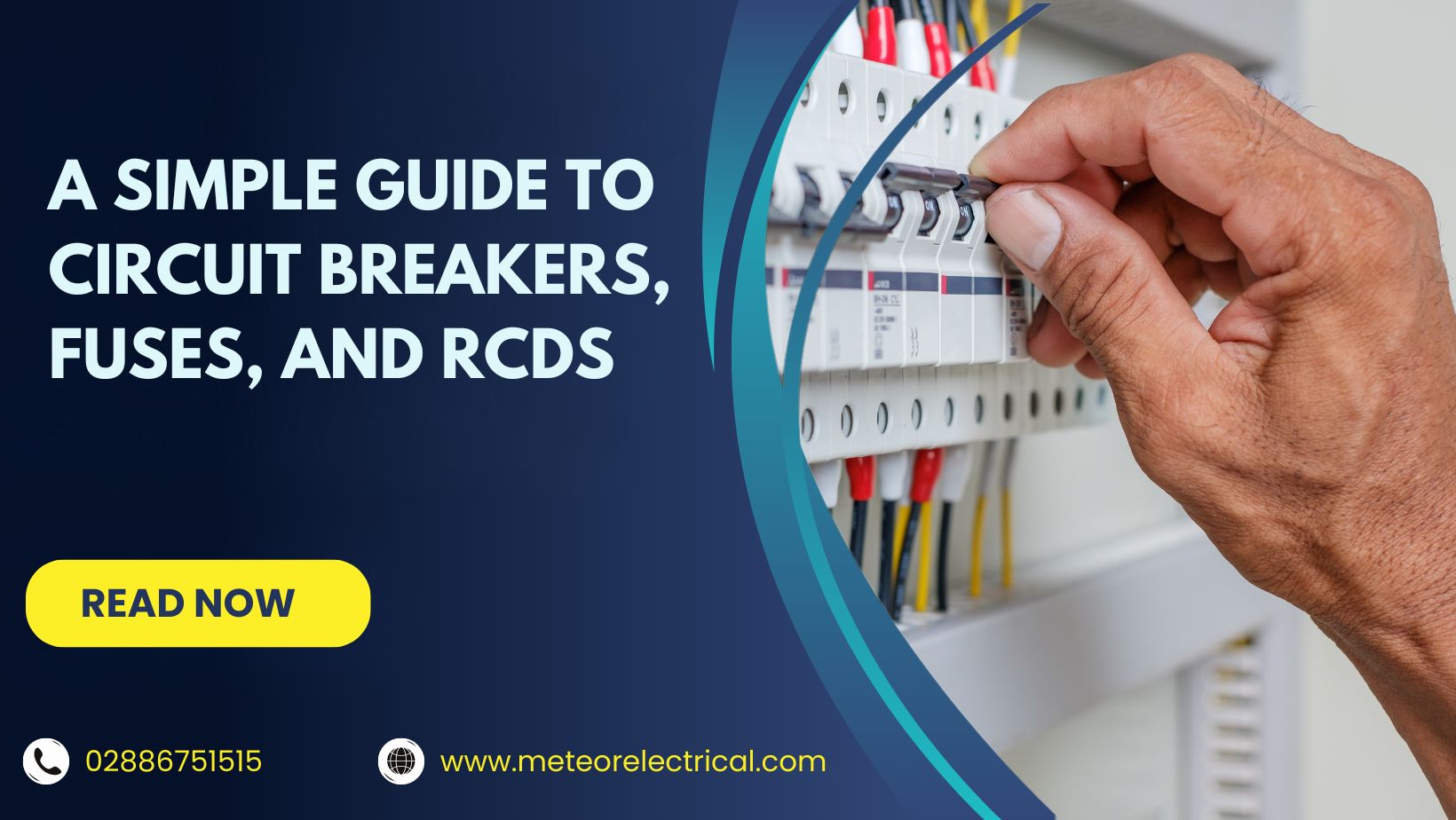Know Your Home's Electrical System: Circuit Breakers, Fuses, and RCDs

Most of us flip a switch or plug in an appliance without thinking twice. But behind that convenience is a complex electrical system that powers everything from your morning coffee machine to your evening Netflix binge. Understanding how your home's circuit breakers, fuses, and RCDs work is not just about knowledge—it is about keeping your home and loved ones safe.
According to Electrical Safety First, electrical faults cause over 20,000 fires a year in UK homes. That is why knowing what protects your wiring—like a fuse box or RCD—can help you act quickly in emergencies and avoid dangerous mishaps.
Let’s break it down into the essentials every homeowner should know.
Circuit Breakers and Fuses: Your Electrical Safety Net

Think of circuit breakers and fuses as the bodyguards of your home’s electrical setup. They are designed to shut down power when something goes wrong, preventing fires and damage to appliances.
Here’s how they work:
A circuit breaker trips (turns off) if it detects a power overload. This might happen when:
- You plug in too many devices on one circuit.
- An appliance is defective or worn out.
- A high-powered appliance is being used on a circuit not built to handle it.
A fuse blows under similar overload conditions, but instead of resetting, you need to replace it.
Pro Tip:
If a circuit trips repeatedly, unplug everything from that circuit. Then try resetting it. If it holds, one of your appliances was the problem. If it still trips, call a licensed electrician immediately.
Every home should also have a main circuit breaker, usually located near your fuse board. This master switch lets you cut power to the entire house in case of an emergency. Learn more about how fuse boxes work at The Spruce.
What Are RCDs and Why Do You Need Them?

RCDs (Residual Current Devices) are critical for protection against electric shocks, especially in wet areas like kitchens, bathrooms, and outdoor sockets. They monitor the flow of electricity and shut it off instantly if they detect a leakage.
- If you drop a hairdryer into the sink, the RCD cuts the power within milliseconds.
- A single RCD can protect multiple sockets, often up to four.
- They are mandatory in newer electrical systems and essential in older homes for safety compliance.
Safety Tip:
You should test your RCDs every three months by pressing the "test" button. If it does not click off, replace it or have an electrician inspect it.
Credit: eFIXX
Choose the Right Protection With Meteor Electrical
At Meteor Electrical, we stock a complete range of safety components to match your needs:
- Mini Circuit Breakers (MCBs) – Ideal for modern homes and offices.
- Three Phase RCBOs – Perfect for commercial or heavy-duty use.
- RCDs and Safety Switches – Suitable for residential spaces with water exposure.
Whether you are upgrading your existing fuse board or fitting a new build, our high-quality, compliant components ensure lasting peace of mind.
Get fast, next-day delivery across the UK.
Explore our Circuit Protection Range
Key Takeaways
- Circuit breakers and fuses prevent overloads and protect your appliances.
- Main circuit breakers can shut off all power in your home.
- RCDs protect you from electric shocks, especially near water.
- Test your RCDs regularly and seek professional help for persistent issues.
Quick Comparison Table: Fuses, Circuit Breakers, and RCDs
| Feature | Fuse | Circuit Breaker | RCD (Residual Current Device) |
|---|---|---|---|
| Primary Function | Prevent overload | Prevent overload & short circuits | Protect against electric shock |
| Reusability | ❌ Single-use, must be replaced | ✅ Can be reset after tripping | ✅ Can be reset after tripping |
| Response Time | Fast, but depends on fuse rating | Fast (milliseconds) | Ultra-fast (within 30 milliseconds) |
| Ideal For | Older or basic setups | Modern residential and commercial setups | Areas near water (kitchens, bathrooms, outdoors) |
| Protection Type | Equipment and wiring | Equipment, wiring, and circuit safety | Human safety from electric shocks |
If you are looking to upgrade your electrical system, replace faulty breakers, or add more RCD protection, now is the time.
Conclusion: Safety First, Always
Understanding how your home electrical protection system works is one of the smartest things you can do as a homeowner. It is not just about avoiding flickering lights or nuisance tripping—it is about safeguarding your family and property.
At Meteor Electrical, we are proud to offer reliable, regulation-compliant components that keep your home safe and efficient. Whether you are a homeowner, landlord, or professional installer, our team is here to help you choose the right equipment with confidence.
Ready to upgrade your home’s safety?
Shop circuit breakers, fuses, and RCDs at Meteor Electrical today.
FAQs
1. What is the difference between a fuse and a circuit breaker?
A fuse melts and needs replacing when overloaded, while a circuit breaker simply trips and can be reset. Both protect against power surges.
2. How often should I test my RCDs?
You should test RCDs every 3 months using the "test" button to ensure they are working correctly. If it does not trip, it needs replacing.
3. Why does my circuit breaker keep tripping?
Frequent tripping usually means an overload or faulty appliance. Unplug all devices, reset the breaker, and reconnect one at a time to identify the issue.
4. Do all homes need an RCD?
Yes, especially in areas near water like kitchens, bathrooms, and gardens. RCDs are vital for shock protection and are required in newer installations.
5. Can I buy circuit breakers and RCDs online?
Absolutely. You can buy high-quality, compliant circuit breakers, RCDs, and fuses directly from Meteor Electrical with next-day UK delivery.

